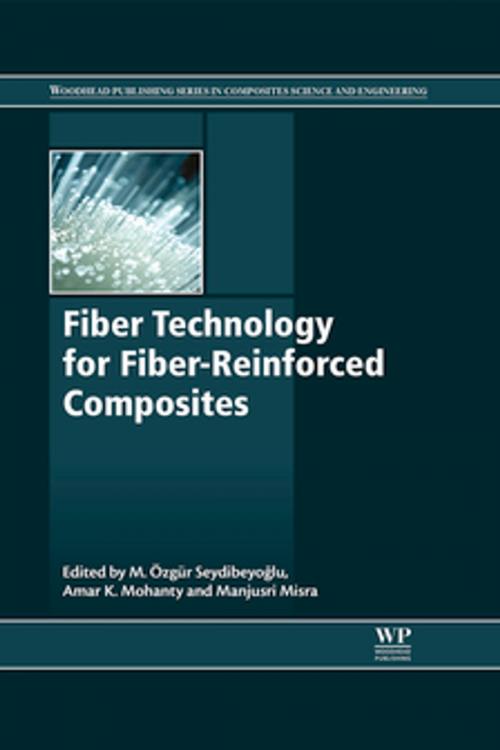Fiber Technology for Fiber-Reinforced Composites
Nonfiction, Science & Nature, Technology, Textiles & Polymers, Material Science| Author: | ISBN: | 9780081009932 | |
| Publisher: | Elsevier Science | Publication: | May 22, 2017 |
| Imprint: | Woodhead Publishing | Language: | English |
| Author: | |
| ISBN: | 9780081009932 |
| Publisher: | Elsevier Science |
| Publication: | May 22, 2017 |
| Imprint: | Woodhead Publishing |
| Language: | English |
Fiber Technology for Fiber-Reinforced Composites provides a detailed introduction to fiber reinforced composites, explaining the mechanics of fiber reinforced composites, along with information on the various fiber types, including manufacturing of fibers (starting from monomers and precursors), fiber spinning techniques, testing of fibers, and surface modification of fibers.
As material technologies develop, composite materials are becoming more and more important in transportation, construction, electronics, sporting goods, the defense industry, and other areas of research. Many engineers working in industry and academics at universities are trying to manufacture composite materials using a limited number of fiber types with almost no information on fiber technology, fiber morphology, fiber properties, and fiber sizing agents. This book fills that gap in knowledge.
- Unique in that it focuses on a broad range of different fiber types used in composites manufacturing
- Contains contributions from leading experts working in both industry and academia
- Provides comprehensive coverage on both natural and nanofibers
Fiber Technology for Fiber-Reinforced Composites provides a detailed introduction to fiber reinforced composites, explaining the mechanics of fiber reinforced composites, along with information on the various fiber types, including manufacturing of fibers (starting from monomers and precursors), fiber spinning techniques, testing of fibers, and surface modification of fibers.
As material technologies develop, composite materials are becoming more and more important in transportation, construction, electronics, sporting goods, the defense industry, and other areas of research. Many engineers working in industry and academics at universities are trying to manufacture composite materials using a limited number of fiber types with almost no information on fiber technology, fiber morphology, fiber properties, and fiber sizing agents. This book fills that gap in knowledge.
- Unique in that it focuses on a broad range of different fiber types used in composites manufacturing
- Contains contributions from leading experts working in both industry and academia
- Provides comprehensive coverage on both natural and nanofibers















